There's a tree near my home that always gives the first warning that summer is leaving. It has turned into a fiery scarlet, now being joined by other trees starting to show a bit of color. I believe it has something to do with the amount of sugar in its sap, the moisture hitting it from dew, and maybe its position on the road. The many oaks here in Oakland County don't make the gorgeous autumns of some areas, so these glimpses of autumnal color are appreciated.
What is not appreciated are the "weeds" getting ready for the cold winter. Taking my dog on hikes can often have an after-hike activity...removing burrs! Do an online search for burrs and find it sometimes with one "r" and often with two, but always about how to remove them from clothing and dog fur.
The Burdock is a frequent and fairly obvious pest. Healthbenefitstimes.com assures us it has both health and nutritional values, but I'm not a fan. Let a naturalist sing their praises, my dog and I just want to leave them alone.My real puzzle is the tiny burrs. What do they look like before becoming persistent little burrs? I love wildflowers, so I'd really like to know if they are something I enjoy before they become invaders on clothing and fur. They are sneaky enough that you often don't spot them, unlike burdock, until it's too late.
Autumn nearing means it's time to take out The Topaz Story Book anthology, subtitled "Stories and Legends of Autumn, Hallowe'en, and Thanksgiving" by the Skinner sisters, Ada and Eleanor. In there I found a story and a half (one is barely big enough to be a full story) about "weeds" entering this time of year.
The main story is by turn-of-the-previous-century Danish author, Carl Ewald. He's little known and appreciated these days, but I recommend going to Project Gutenberg for his books translated into English (mainly by Alexander Teixeira de Mattos), including the lovely source of today's story, "The Weeds" in The Old Willow Tree, and Other Stories, which includes charming drawings by Helen M. Jacobs and G.E. Lee. I'm giving the version in The Topaz Story Book as it's a bit simplified and closer to telling. My suggestion in retelling it is to change to plants in your own locality as some are wild plants in the author's Denmark. (Here in the United States wheat also is more likely than rye for the farmer's crop.) Definitely keep the personification of the Breeze and various "Weeds."
 | |
| Illustration by Helen M. Jacobs and G.E. Lee |
Carl Ewald
It was a beautiful, fruitful season. Rain and sunshine came by turns just as it was best for the corn. As soon as ever the farmer began to think that things were rather dry, you might depend upon it that next day it would rain. And when he thought that he had had rain enough, the clouds broke at once, just as if they were under his command.
So the farmer was in good humour, and he did not grumble as he usually does. He looked pleased and cheerful as he walked over the field with his two boys.
“It will be a splendid harvest this year,” he said. “I shall have my barns full, and shall make a pretty penny. And then Jack and Will shall have some new trousers, and I’ll let them come with me to market.”
“If you don’t cut me soon, farmer, I shall sprawl on the ground,” said the rye, and she bowed her heavy ear quite down towards the earth.
The farmer could not hear her talking, but he could see what was in her mind, and so he went home to fetch his scythe.
“It is a good thing to be in the service of man,” said the rye. “I can be quite sure that all my grain will be cared for. Most of it will go to the mill: not that that proceeding is so very enjoyable, but it will be made into beautiful new bread, and one must put up with something for the sake of honour. The rest the farmer will save, and sow next year in his field.”
At the side of the field, along the hedge, and the bank above the ditch, stood the weeds. There were dense clumps of them—thistle and burdock, poppy and harebell, and dandelion; and all their heads were full of seed. It had been a fruitful year for them also, for the sun shines and the rain falls just as much on the poor weed as on the rich corn.
“No one comes and mows us down and carries us to a barn,” said the dandelion, and he shook his head, but very cautiously, so that the seeds should not fall before their time. “But what will become of all our children?”
“It gives me a headache to think of it,” said the poppy. “Here I stand with hundreds and hundreds of seeds in my head, and I haven’t the faintest idea where I shall drop them.”
“Let us ask the rye to advise us,” answered the burdock.
And so they asked the rye what they should do.
“When one is well off, one had better not meddle with other people’s business,” answered the rye. “I will give you only one piece of advice: take care you don’t throw your stupid seed on to the field, for then you will have to settle accounts with me.”
This advice did not help the wild flowers at all, and the whole day they stood pondering what they should do. When the sun set they shut up their petals and went to sleep; but the whole night through they were dreaming about their seed, and next morning they had found a plan.
The poppy was the first to wake. She cautiously opened some little trap-doors at the top of her head, so that the sun could shine right in on the seeds. Then she called to the morning breeze, who was running and playing along the hedge.
“Little breeze,” she said, in friendly tones, “will you do me a service?”
“Yes, indeed,” said the breeze. “I shall be glad to have something to do.”
“It is the merest trifle,” said the poppy. “All I want of you is to give a good shake to my stalk, so that my seeds may fly out of the trap-doors.”
“All right,” said the breeze.
And the seeds flew out in all directions. The stalk snapped, it is true; but the poppy did not mind about that.
“Good-bye,” said the breeze, and would have run on farther.
“Wait a moment,” said the poppy. “Promise me first that you will not tell the others, else they might get hold of the same idea, and then there would be less room for my seeds.”
“I am mute as the grave,” answered the breeze, running off.
“Ho! ho!” said the harebell. “Haven’t you time to do me a little, tiny service?”
“Well,” said the breeze, “what is it?”
“I merely wanted to ask you to give me a little shake,” said the harebell. “I have opened some trap-doors in my head, and I should like to have my seed sent a good way off into the world. But you mustn’t tell the others, or else they might think of doing the same thing.”
“Oh! of course not,” said the breeze, laughing. “I shall be as dumb as a stone wall.” And then she gave the flower a good shake and went on her way.
“Little breeze, little breeze,” called the dandelion, “whither away so fast?”
“Is there something the matter with you too?” asked the breeze.
“Nothing at all,” answered the dandelion. “Only I should like a few words with you.”
“Be quick then,” said the breeze, “for I am thinking seriously of lying down and having a rest.”
“You cannot help seeing,” said the dandelion, “what trouble we are in this year to get all our seeds put out in the world; for, of course, one wishes to do what one can for one’s children. What is to happen to the harebell and the poppy and the poor burdock I really don’t know. But the thistle and I have put our heads together, and we have hit on a plan. Only we must have you to help us.”
“That makes four of them,” thought the breeze, and she could not help laughing out loud.
“What are you laughing at?” asked the dandelion. “I saw you whispering just now to the harebell and poppy; but if you breathe a word to them, I won’t tell you anything.”
“Why, of course not,” said the breeze. “I am mute as a fish. What is it you want?”
“We have set up a pretty little umbrella on the top of our seeds. It is the sweetest little plaything imaginable. If you will only blow a little on me, the seeds will fly into the air and fall down wherever you please. Will you do so?”
“Certainly,” said the breeze.
And hush! it went over the thistle and the dandelion and carried all the seeds with it into the cornfield.
The burdock still stood and pondered. Its head was rather thick, and that was why it waited so long. But in the evening a hare leapt over the hedge.
“Hide me! Save me!” he cried. “The farmer’s dog Trusty is after me.”
“You can creep behind the hedge,” said the burdock, “then I will hide you.”
“You don’t look able to do that,” said the hare, “but in time of need one must help oneself as one can.” And so he got in safely behind the hedge.
“Now you may repay me by taking some of my seeds with you over into the cornfield,” said the burdock; and it broke off some of its many heads and fixed them on the hare.
A little later Trusty came trotting up to the hedge.
“Here’s the dog,” whispered the burdock, and with one spring the hare leapt over the hedge and into the rye.
“Haven’t you seen the hare, burdock?” asked Trusty. “I see I have grown too old to go hunting. I am quite blind in one eye, and I have completely lost my scent.”
“Yes, I have seen him,” answered the burdock; “and if you will do me a service, I will show you where he is.”
Trusty agreed, and the burdock fastened some heads on his back, and said to him:
“If you will only rub yourself against the stile there in the cornfield, my seeds will fall off. But you must not look for the hare there, for a little while ago I saw him run into the wood.” Trusty dropped the burrs on the field and trotted to the wood.
“Well, I’ve sent my seeds out in the world all right,” said the burdock, laughing as if much pleased with itself; “but it is impossible to say what will become of the thistle and the dandelion and the harebell and the poppy.”
Spring had come round once more, and the rye stood high already.
“We are pretty well off on the whole,” said the rye plants. “Here we stand in a great company, and not one of us but belongs to our own noble family. And we don’t get in each other’s way in the very least. It is a grand thing to be in the service of man.”
But one fine day a crowd of little poppies, and thistles and dandelions, and burdocks and harebells poked up their heads above ground, all amongst the flourishing rye.
“What does this mean?” asked the rye. “Where in the world are you sprung from?”
And the poppy looked at the harebell and asked: “Where did you come from?”
And the thistle looked at the burdock and asked: “Where in the world have you come from?”
They were all equally astonished, and it was an hour before they had explained. But the rye was the angriest, and when she had heard all about Trusty and the hare and the breeze she grew quite wild.
“Don’t be in such a passion, you green rye,” said the breeze, who had been lying behind the hedge and hearing everything. “I ask no one’s permission, but do as I like; and now I’m going to make you bow to me.”
Then she passed over the young rye, and the thin blades swayed backwards and forwards.
“You see,” she said, “the farmer attends to his rye, because that is his business. But the rain and the sun and I—we attend to all of you without respect of persons. To our eyes the poor weed is just as pretty as the rich corn.”
(Abridged.)
***I promised a short tale, too, about Weeds from The Topaz Story Book and no source is given.
THE LITTLE WEED
“You’re nothing but a weed,” said the children in the fall. The little weed hung its head in sorrow. No one seemed to think that a weed was of any use.
By and by the snow came and the cold winds blew. There were many hungry little birds hunting for food.
“Twit! Twit Twee! See! See! See!” sang a merry little bird one cold morning.
“Here is a lovely weed full of nice brown seeds!” And he made a good meal from those seeds that morning. Then three other little birds came to share the feast.
The little weed was so happy that she held her head up straight and tall again.
“That is what I was meant for,” she said. “I am good for something. Four hungry little birds had as many seeds as they wished for their breakfast. Next year I’ll grow as many seeds as I can to feed many more hungry little birds. Good-bye, little birds,” she called out to the little feathery friends. “Come again next year. I’ll have another dinner for you.”
“Good-bye, little weed,” sang the birds. “We have had a fine meal and we thank you very much. You’ll see us again next year. It is so hard to get enough to eat during the cold weather, and we are grateful to you for holding your seeds for us.”
“It’s nice to find that one is of some use after all, isn’t it?” called out the little weed to her neighbour in the next field.
—Selected.
***Happy telling and hiking among the "weeds." If the definition of a weed is something that grows where you don't want it, I find grass sneaking into garden areas a frustrating weed. (As for those of you thinking about a different kind of "weed" legal in some areas and not in others. . . "that's a whole 'nother story.")
.jpg)
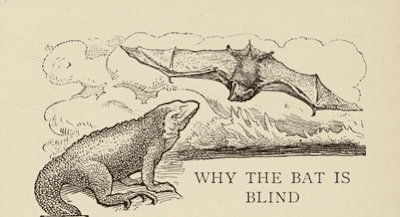
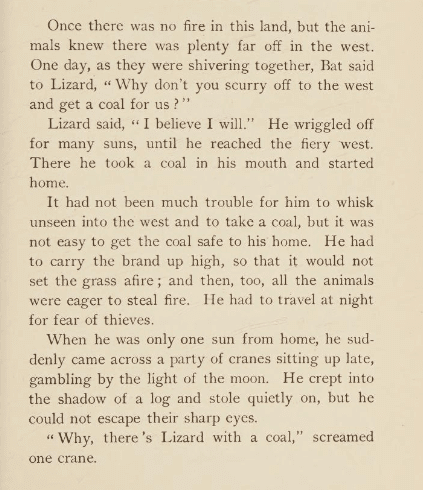
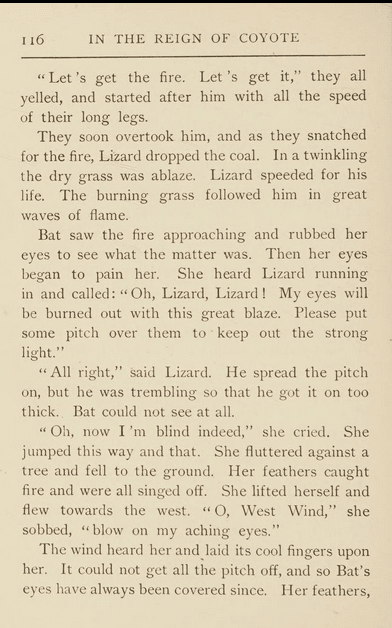





.jpg)
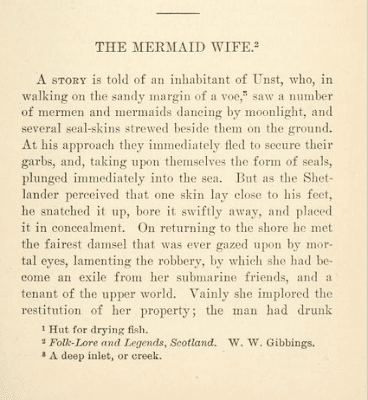

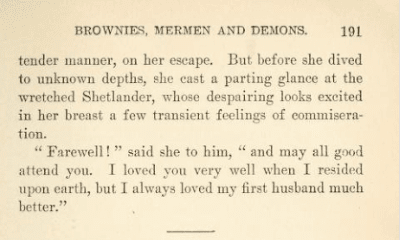
.jpg)